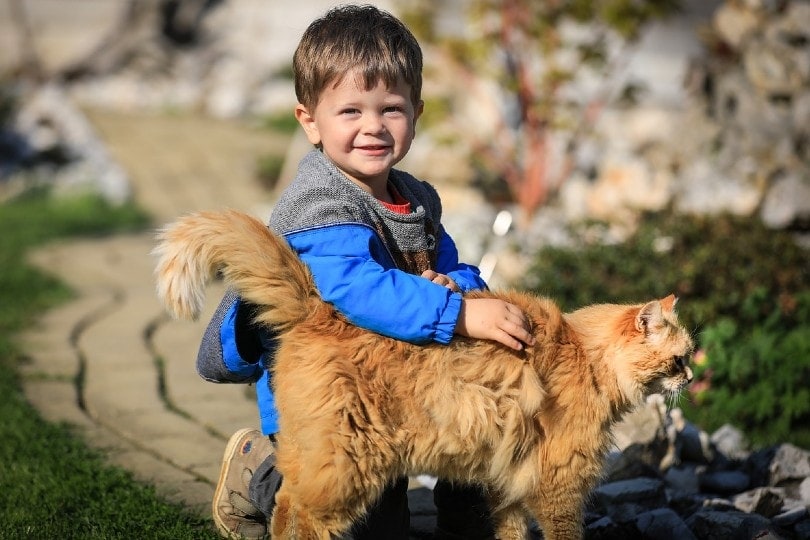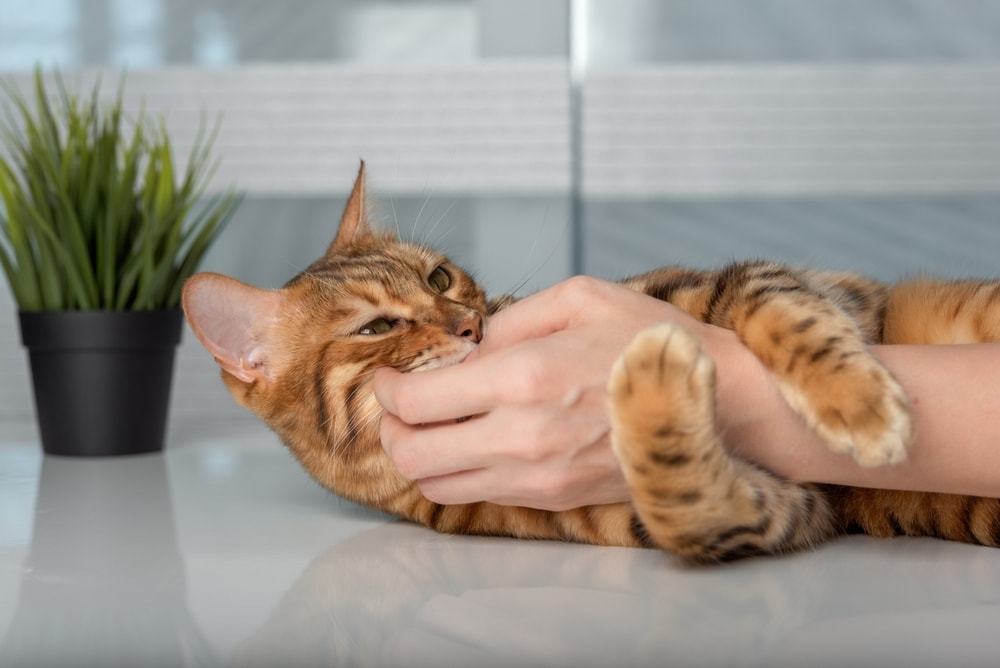Is Gladiolus Poisonous To Cats? Keeping Your Cat Safe
Updated on
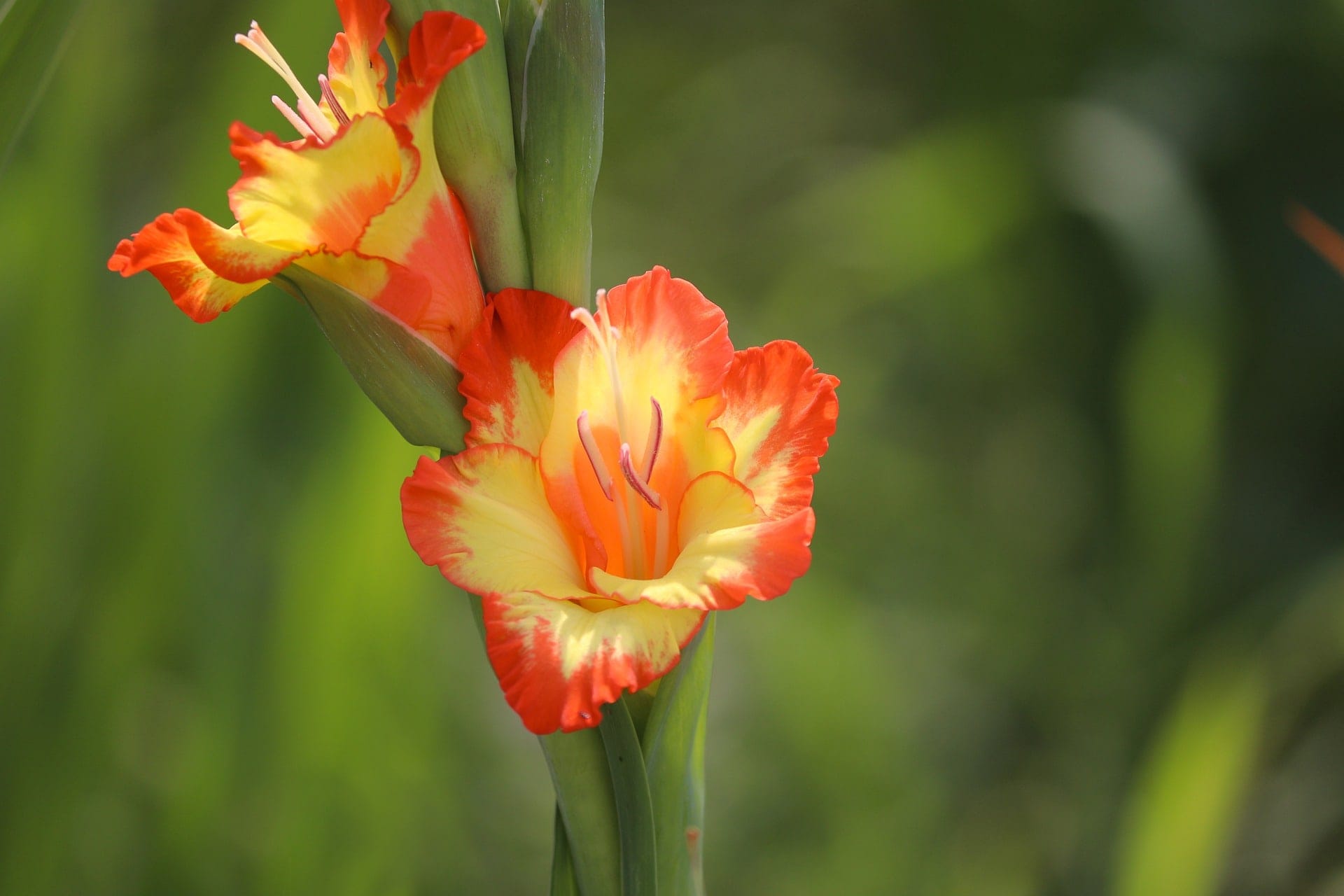
Click to Skip Ahead
Gladiolus is a popular plant found in many gardens. They’re easy to grow, offer a lovely scent, and boast the most beautiful colors. Unfortunately, they hold a nasty secret that many are unaware of—they are poisonous to cats.
Before setting your new kitten out to explore your garden, make sure you know what plants you have out there. Cats are curious, and with that comes scratching and chewing on plants. Unfortunately, many cats get very sick and need medical care because their owners didn’t realize the type of plants they owned were poisonous.
If you have gladiolus in your house or garden, the safest action would be to give it away to a friend who doesn’t own any pets or place it in a room or spot in your house that your cat cannot access.
 What Happens If Your Cat Eats Gladiolus?
What Happens If Your Cat Eats Gladiolus?
The amount of gladiolus your cat chewed on will determine the severity of their symptoms, as well as the specific part of the plant they ingested. The bulbs are the most dangerous part to cats because that’s where the toxins are the most concentrated. However, regardless of the area they chewed on, you’ll need to discuss it with your veterinarian immediately. The ASPC lists them as toxic to cats, dogs and horses but that the toxic mechanism is unknown. We could find no studies into the toxicity of Gladiolus. This makes it difficult to determine the level of toxicity of Gladioli.
Your cat will most likely show symptoms if they ate gladiolus, but if you caught them in the act and nothing unusual has occurred yet, don’t wait for them to show signs of being sick before you talk to the vet. The sooner your cat receives treatment, the better the outcome will be.
If your cat has eaten gladiolus, they may experience various symptoms. More severe symptoms will occur if your cat eats a large amount of the plant or the bulbs.
- Drooling
- Loss of appetite
- Vomiting
- Diarrhea
- Fatigue
Your cat will most likely experience gastrointestinal issues, however, if your cat’s symptoms are severe they will require veterinary treatment to help control them and prevent deterioration.
If your cat chewed on a plant and got sick, but you’re uncertain whether it was gladiolus or not, break a piece off and take it with you to the vet or take a photo. They need to know what your cat ate in order to treat them appropriately.

What To Do If Your Cat Eats Gladiolus
It’s frightening to see your cat in discomfort, but stay calm and act quickly. It’s important that you remove all of the gladiolus remaining on your cat, whether it’s stuck in their hair, paws, or mouth.
Next, you need to keep your cat in a secure, comfortable, and safe area until you can speak to or get them to the vet. It’s common for cats to hide away when they feel sick as they are seeking a quiet spot to curl up and sleep. It’s also necessary to monitor your cat and inform the vet of their symptoms.
Make sure you phone your vet and inform them of what has occurred. They’ll ask you to bring your cat in for an examination and will give your cat the necessary treatment to increase their chances of a speedy recovery. Your cat may have to spend some time at the vet so that they can monitor its condition.
Will Your Cat Know Gladiolus Is Poisonous?
Kittens are the most at risk around gladiolus and other poisonous plants because they have a habit of playing with and biting just about anything that moves. Older cats are less at risk of eating poisonous plants because their instincts are heightened, and they typically avoid anything poisonous. They are also less likely to put unfamiliar vegetation in their mouths.
Cats that are most at risk of accidentally ingesting poisonous plants are cats that are kept entirely indoors. A cat kept indoors all day may encounter boredom and may target your houseplants in its quest for entertainment. If your cat is kept indoors, make sure you remove any plant that may be a risk to your cat.
Although your houseplants may be pet-friendly, they can still pose a threat to your cat, so make sure they’re out of reach. If your cat accidentally knocks a vase over while brushing themselves up against it or drinking water from it, they may be seriously injured by the impact or the shattered glass.
Cats with access to the yard generally have so much to entertain themselves with that they rarely go nibbling on plants. You may find your cat grazing on grass, which may be for enjoyment or nourishment or to make them vomit. However, accidents are possible, so take preventative measures and remove any questionable plants from your yard.
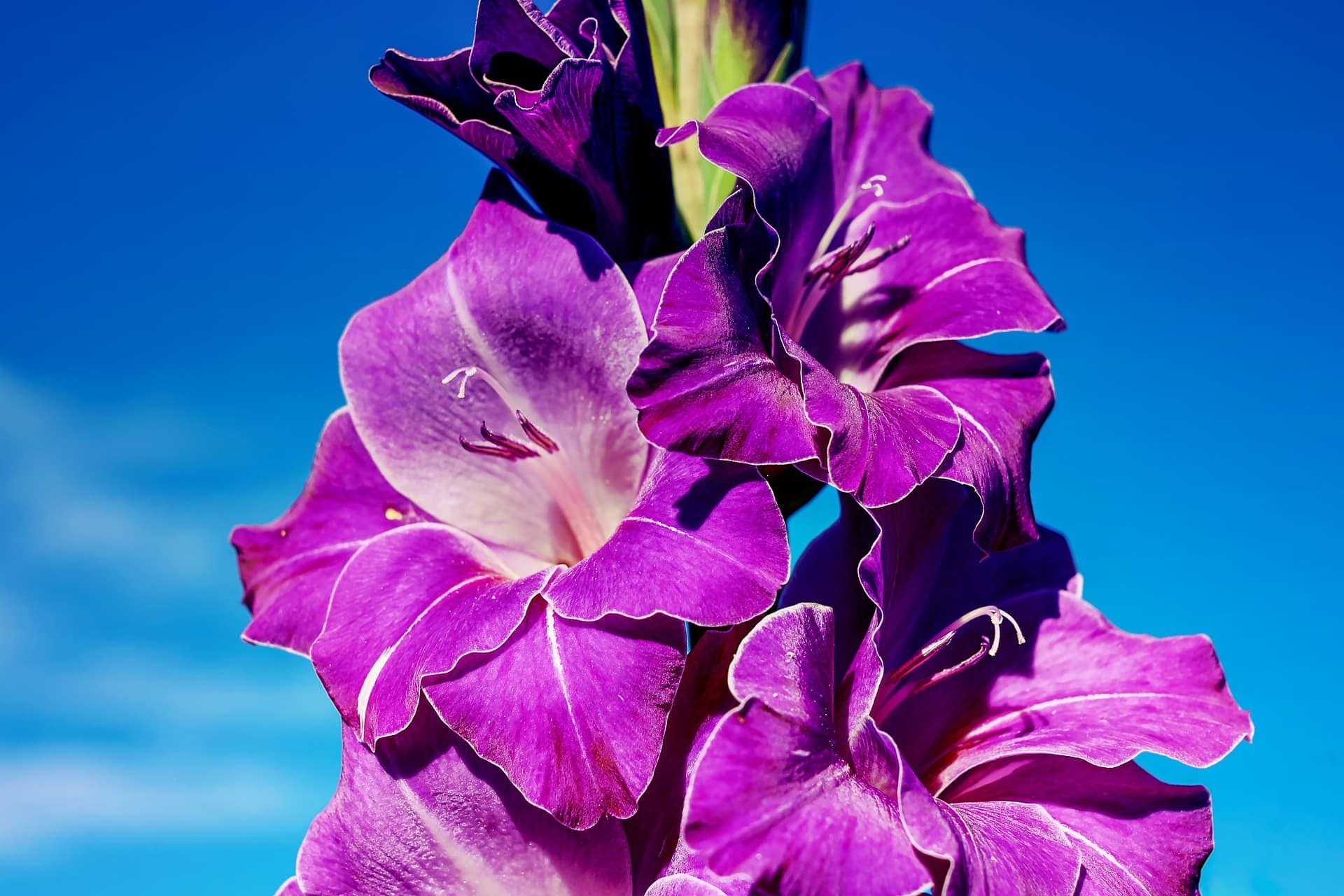
How To Keep Your Cat Safe From Gladiolus
The best and safest option to keep your cat safe from gladiolus would be to remove it from your property. Thankfully, there are some tips to keep your cat away from your favorite plant without having to get rid of it.
1. Cat Grass
Your cat is most likely to chew on your plants if it doesn’t have access to any greenery. If your cat has access to the grass in your yard, you’ll most likely find them munching on that. However, if your cat is kept indoors, you may need to bring the grass to them.
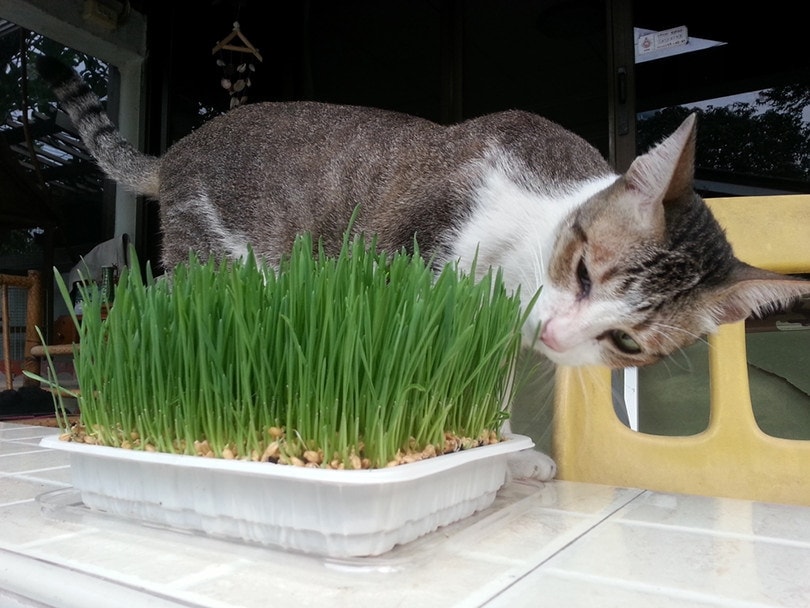
2. Cayenne Pepper
To deter your cat from your gladiolus, sprinkle cayenne pepper over and around it. Otherwise, you can mix cayenne pepper with water and spray it on your plant. It has a strong, spicy scent that cats don’t enjoy, thus repelling them. But make sure your cat doesn’t try to eat the pepper if it is particularly determined.
3. Aluminum Foil
As strange as it may sound, you can also deter your cat with aluminum foil. They don’t like how it feels or sounds under their paws and would rather not encounter it at all. Thankfully, it’s an affordable and harmless way to keep your cat away from your gladiolus.
Place the aluminum foil around or under your plant with the edges sticking out.
4. Soak Tea Bags
Another deterrent is teabags soaked in vinegar and chili powder. The scent of this mixture is strong and spicy enough to keep your cats away.
Add these soaked tea bags to a mason jar and poke holes into the lid, allowing the scent to deter your cat from your gladiolus while preventing them, or any other pet, from possibly choking on the teabag.
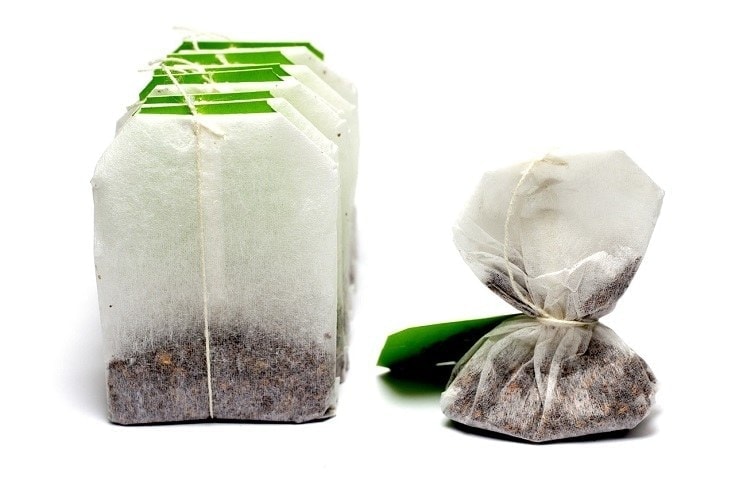
5. Make It Inaccessible
A sure way to keep your cat from your gladiolus is to make it inaccessible. Hanging your plant in a basket, on a high shelf that they cannot jump onto, or in an empty fish tank or birdcage will keep it out of reach of your kitty.
If you place your gladiolus in a hanging basket from your roof, make sure that the basket is wide enough to catch any leaves, bulbs, or petals that could drop onto the floor.
6. Train Your Cat
Cats are smarter than you may realize and can be trained to do a variety of tricks or commands. With plenty of training and patience, you can train your cat not to go near your gladiolus or plants in general.
Until your cat is fully trained, though, make sure your gladiolus is untouchable.
 Final Thoughts
Final Thoughts
While the gladiolus is a beautiful plant, you need to take precautions if you have a cat at home. It’s poisonous to cats, so make sure that you either keep it somewhere out of reach or take measures to prevent your cat from going near it.
However, to avoid any risk to your pet, it’s better to remove the plant entirely. There are countless alternative plants to use that aren’t harmful in any way.
If your cat gets into and eats gladiolus, make sure to act quickly and take them to the vet.
Related Reads:
Featured Image Credit: manfredrichter, Pixabay
 What Happens If Your Cat Eats Gladiolus?
What Happens If Your Cat Eats Gladiolus?
